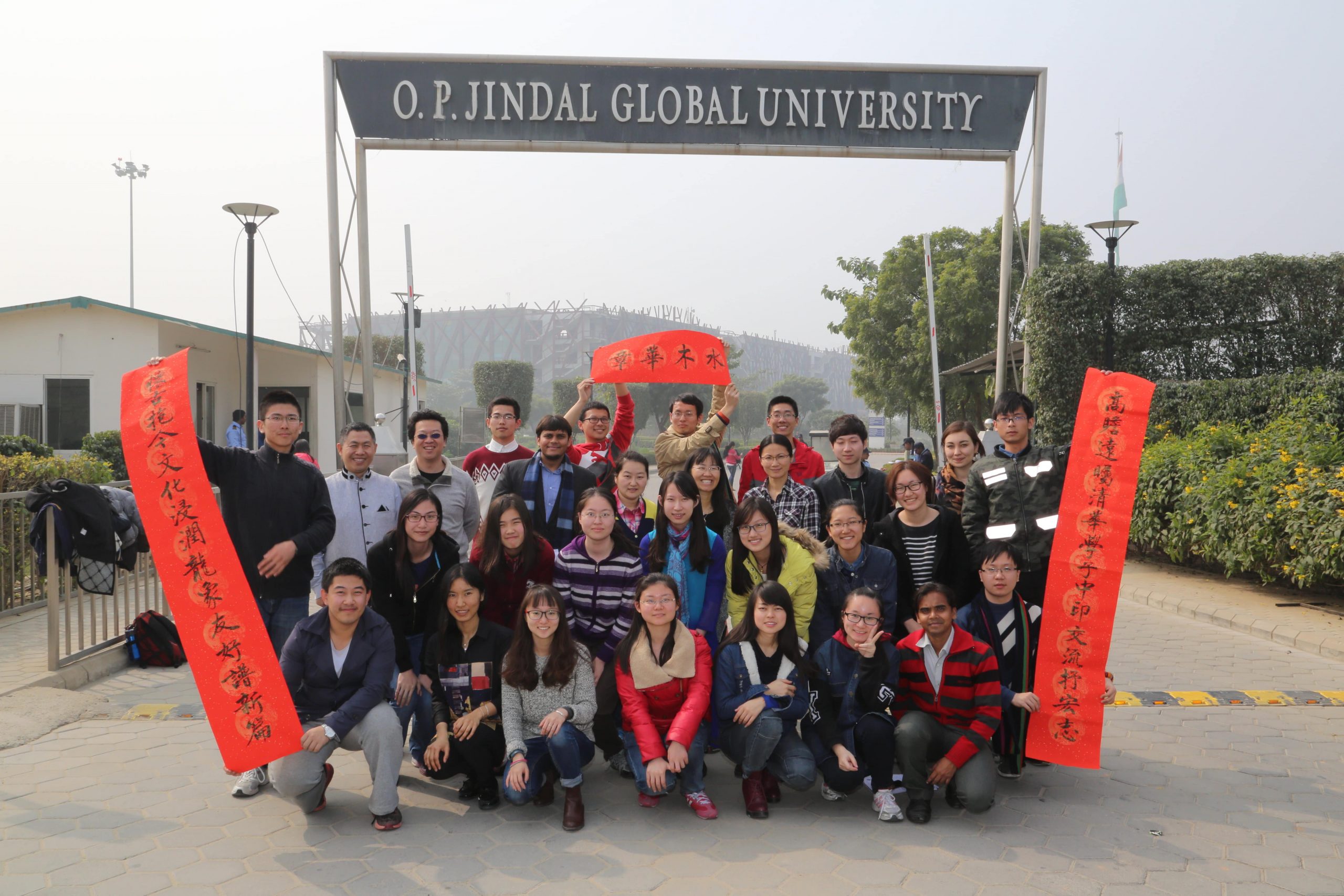Many graduates would recall their college days as times of great learning. For those caught between hundreds of peers and a distant instructor in lecture halls big and daunting, learning has often happened outside the classroom. At JGU, the learning experience is diametrically different.
The classroom becomes a tight-knit community with the student at the heart of it all—and it clearly shows. With a 1:9 faculty-student ratio, learning is personalised. A student finds not only distinguished faculty, but also committed mentors at JGU.
Individual attention
A small class size certainly inspires deeper learning. It also ensures individual attention. “We all really valued the opportunity JGU offered. It recognises and encourages merit. If I wanted to present a paper in Istanbul, faculty would guide me and even raise funds if possible. They made sure we got all the help we needed. When a student does well, faculty genuinely take pride in helping them reach their full potential,” says Raveena Sethia, a 2017 B.A. LL.B. alumnus who had a chance to attend a moot court competition in London, as part of the only Indian and only all women’s team representing JGU and India. Sethia went on to win the ‘Best Speaker’ award. It is this degree of attention and involvement that students can expect from JGU. Interest is noticed, talent is celebrated, aptitude is nourished and aspirations are fulfilled.
Opportunity to engage
In traditional-style universities, it is not always easy to speak up, question or engage in the classroom—the atmosphere is simply not conducive to be an open forum of discussion. The typical monologue of big lecture halls gives way to dialogue in smaller classes. Students are encouraged to interact with each other. They are not merely told what to think, but taught how to think, analyse, form their own ideas, and to question. Students actively engage in the classroom narrative as a part of the conversation.
More feedback for students
While there is a strong Office of Career Services at the university, where students are guided on internship and job applications, there is also the added value of having a close mentor. One-on-one interactions are facilitated, allowing a lot more detailed feedback on performance. There is consistent guidance on research work, various aspects of study, choosing electives smartly, navigating future plans, and much more. Faculty are open and available. Many alumni recount seeking out the help of their professors in the middle of the night—to be happily obliged. Even after graduation, professors remain lifelong guides and often become friends.
A tight-knit community
Prof. Armin Rosencranz, Dean, Jindal School of Environment and Sustainability, has been teaching law and policy at JGU for a few years. He visited London recently where he got together with four of his former students. Two of them are pursuing higher education at Cambridge University and two at London School of Economics. “It was a pleasure to reconnect and find out how they’re doing, what they’re studying. They all have fond memories of JGU and I have fond memories of teaching and writing with them,” says Prof. Rosencranz. The internationally renowned political scientist and lawyer is now looking forward to spending time in Rajasthan soon, where he has been invited by his Teaching Assistant to visit his family home. The level of faculty involvement and attention to students at JGU naturally gives rise to a very tight-knit community. Mentors are approachable and dependable—something students truly appreciate.
Responsive curriculum and pedagogy
With large classes, faculty typically resort to a lecture-based, fact-oriented instructional approach. To create an atmosphere of discussion, debate and dialogue is much more challenging with big numbers. For a small class, however, it becomes easy to engage students through exciting methods of instruction. Students at JGU can look forward to classes that are always interesting.
There is autonomy at the level of schools, and further, in the hands of instructors. Academic freedom is a central pillar at JGU. This means professors can design electives and courses based on student demand, research interest and relevance to the evolving national and international situations. Students stand to gain because when they enter the job market, they’re more abreast of latest trends and developments. JGU alumni can be a step ahead of their peers in terms of their ability to grasp new concepts. All this is possible because of a learning environment that is based on academic freedom, interaction and engagement, curiosity and creativity.
Wider scope for research
For those who have a tendency towards research and going deep into study, faculty are very supportive. “I met Aditya Vora when he was a first year student. This 17-year-old was talking about ‘expropriation’ which is not a concept that everybody knows,” says Prof. Rosencranz. Expropriation refers to the act of taking away private property against the wishes of owners, typically by governments. “I knew we had to write something together! So we wrote one paper and he kept coming back with different ideas. He was an exceptionally good writer. We’ve written 25 papers together!” he adds. Prof. Rosencranz has written over 100 papers with his students at JGU. He is now co-authoring a book with another JGU alumnus, Raghuveer Nath.
The opportunities for research are aplenty. JGU has over 55 interdisciplinary research centres, and has come out with over 3000 publications till date. While dissertations are typically mandated at the Master’s and Ph.D. levels, even at the undergraduate level, students have the option of writing a thesis. Regular assignments also invoke research tools and methodologies, for which significant training takes place throughout the curriculum.
Impact on assessment and performance
Learning that is involving, hands-on and experiential is far more effective than lecture-based approaches. This shows in student performance at JGU. Considering class participation is a key aspect of student assessment, they become consciously more involved in the classroom. This gives them the confidence to voice their opinions, raise questions, and challenge professors to pose different or even opposing viewpoints. The classroom experience triggers a healthy environment of debate. As a result, graduates come out with excellent communication skills, well-founded viewpoints and a sharp intellect—which translates to their grades at university, and their approach to life.





